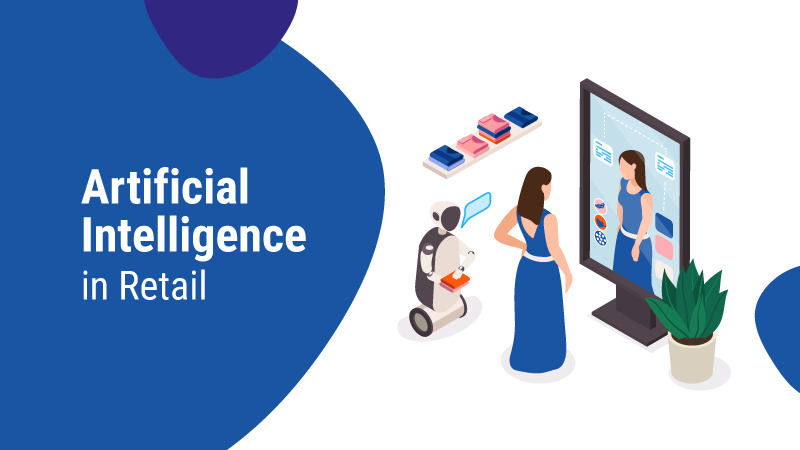Artificial Intelligence in Insurance

The insurance industry relies primarily on solving the risks associated with a business or an individual. Therefore, insurance companies need a systematic and smooth way to deal with any risk in order to gain more revenue. The advent of Artificial Intelligence (AI) can transform the insurance industry from a ‘detection and repair’ to a ‘predictive and preventive model. The implementation of Artificial Intelligence with the help of an AI development company in the insurance sector has helped many insurance players to reap a lot of benefits such as efficient claim management, less fraud, and more. Now let us take a close look into the uses or applications of artificial intelligence in the insurance sector.
Applications of AI in Insurance
Insurance claim management and investigation
For insurance companies, claims management is one of the crucial operations. Insurance companies can make use of AI tools to make their claim evaluation and settlement process efficient. AI controls every process in the insurance industry such as claims generation, data capturing, approvals, payment tracking, etc. It can also perform these tasks with less time and minimal effort. When AI is integrated with other applications like fraud detection, it enables companies to run an efficient, data-based, and automated end-to-end claims processing environment free from human errors.
Fraud detection and prevention
There is a loss of USD 40 billion each year due to insurance fraud alone in the United States. This figure gets multiplied when it comes to global scenarios. The traditional investigation method used to recognize and locate suspicious claims involves a great deal of voluntary effort and time. Claimants of suspicious activity need to be closely monitored and pursued. Due to the lack of time to complete the job, this approach is not welcomed in such a competitive industry as insurance.
Many surveys have shown that a significant number of insurance providers are depending on technology to a greater extent in order to identify and prevent such fraudulent activities. AI can play a vital role in detecting patterns in past data, helping to detect fraud early and prevent it from occurring. As a result, insurance businesses can make a comprehensive risk evaluation before providing their services.
Better loss estimation for low claims leakage
The introduction of most modern technologies such as AI, deep learning, and image recognition systems have helped transform the insurance industry. With the help of machine learning capabilities, insurers can evaluate and predict the damage from a photo of the object, thus proving to be the best technology to be used in claim management. It helps to assess possible damage and recommends parts that have to be replaced. This makes the loss calculation process faster and more efficient.
Claims Reporting
Insurers can report, track, sort, and assign claims with or without human mediation, depending on the advanced AI systems they use. Chatbots in the insurance sector can effectually deal with the First Notice of Loss (FNOL) reporting process when combined with Natural Language Processing (NLP) and Automatic Speech Recognition technology (Conversational AI). This makes the process simple and boosts productivity. Moreover, there are several benefits of leveraging conversational AI in insurance companies. Automated chatbots can streamline the claim reporting process efficiently and can be used by customers to report incidents from anywhere, anytime. The AI-powered chatbot can then spread the information to the person involved for further processing.
Benefits of using AI in insurance
So far, we have covered the application of AI in the insurance industry. Now let us talk about the benefits AI offers to the insurance industry.
Usage-based insurance
AI played an important role in bringing up the idea of behavioral policy pricing. The conventional method of reaching insurance premiums on the basis of statistical records has changed with the introduction of AI and resulted in using analytical and personal data to determine the exact premium.
Better customer experience
Consumers are not looking for technical jargon, they need simple information that adds value. AI-driven chatbots are useful in providing simple solutions to the intricate questions of a customer. Chatbots have come a long way from giving automated answers to frequently asked questions to recognizing customers’ faces and giving them personalized policies. AI-driven chatbots can improve customer service and minimize the costs of delivering different services to various customers. Companies are utilizing AI to give customized experiences not just to the customers but also to the business clients in order to create more consistent engagement with clients for higher sales, and greater loyalty, and also to evaluate more data from different sources to make better predictions.
Efficient underwriting
AI tops in performing data analysis than human analysis especially when it comes to huge amounts of data. AI applications facilitate the underwriter to give more focus on strategy and portfolio management rather than manually checking data. AI’s algorithms are capable of performing monotonous underwriting tasks efficiently.
Building trust
Trust and loyalty are the two most relevant factors that play a significant role during an insurance process. Essentially, policyholders want a faster claim process. Two important criteria by which a customer rates an insurance company are the time it takes to settle a claim, and an effortless claim settlement is the important one. Once the claim is settled, the customer will assess the performance of an insurance company.
Faster claims settlement
AI helps in automating labor-intensive tasks related to inspections because it has especially proved its worth in times of pandemic through remote inspection. If a vehicle meets with an accident, the insurance provider can assess damages remotely through image sensing. It helps save time and costs during the entire assessment process.
Wrap Up
Artificial Intelligence has grown enough to shake the insurance industry from top to bottom. Customers can have a smooth and easygoing experience at affordable rates. The possibilities AI offers are limitless – insurance will become more personalized as insurers will be able to understand the needs of customers using AI technology. AI will also pave the way to gain new revenue in the future while helping insurers to save costs by accelerating workflows.
Get Started with our AI ServicesRead more about AI
- Artificial Intelligence in E-commerce
- 7 Real-World Applications of Deep Learning
- Artificial Intelligence in Marketing
- Artificial Intelligence in Finance
- Artificial Intelligence in Banking
- Artificial Intelligence in Everyday Life
- Artificial Intelligence in Transportation
- Artificial Intelligence in Fintech
- Artificial Intelligence in Cyber Security
- Artificial Intelligence in Logistics
- Artificial Intelligence in Manufacturing
Blogs by Category
AppForms Artificial Intelligence Blockchain Call Centers Chatbots Cloud Computing Data Management Design Digital Marketing Digital Transformation Enterprise Applications FinTech Insights LowCode Development Microsoft Mobile Apps News Office 365 Robotic Process Automation Security SharePoint Software Development Web ApplicationArtificial Intelligence in Retail

2024-05-23 14:12:28